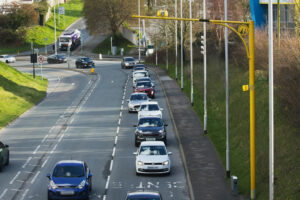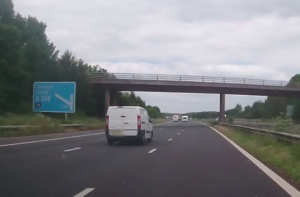Adopting national licensing for operators of Highly Automated Road Passenger Services (HARPS) for all vehicles and flexible regulation that encourages innovation has been the consensus of opinion coming from the Law Commission’s latest consultation on automated vehicles.
However, view were divided on who should administer the operator licensing scheme: whether a new agency or an existing agency such as Traffic Commissioners and what powers do local authorities need to manage HARPS.
This was the response from the second consultation by the Law Commission of England and Wales and the Scottish Law Commission, which forms part of a three-year review of the legal framework for automated vehicles, funded by the Centre for Connected and Autonomous Vehicles (CCAV).
The Commissions received 109 written responses from a cross-section of interest groups including car manufacturers and transport operators, expert consultants and lawyers, road safety groups, bicycle groups, emergency services, local transport authorities and disability representatives.
Nicholas Paines QC, Commissioner for Public Law at the Law Commission of England and Wales, said: “We would like to thank everyone who responded to our consultation for the views and input they’ve given us. At a time when the future is more uncertain than ever, we look forward to using this feedback to produce final recommendations that help the UK harness the opportunities which automated vehicles provide for increased road safety, decarbonisation, and public health.”
David Bartos, Commissioner at the Scottish Law Commission, added: “This consultation highlights the essential role of regulation to ensure the introduction of automated vehicles makes life better and not worse for the communities they serve. The responses have emphasised that supporting accessibility for older and disabled people is an essential part of the successful deployment of automated vehicles for passenger transportation.”
Transport Minister, Rachel Maclean, said: “As we take steps to make self-driving vehicles a reality on our roads, the review led by the Law Commissions in the UK is vital. This piece of work demonstrates our position as a global leader and is the first to articulate how vehicles that don’t require a driver should be regulated. This technology could transform our lives, improve road safety and offer people better, more flexible travel options. I look forward to seeing how this consultation will inform the review and shape regulation in the future.”
























